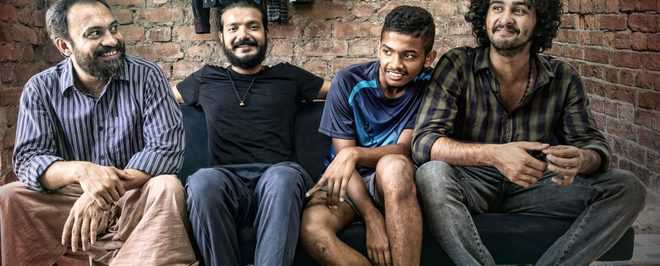
Still from Kumbalangi Nights
Shardul Bhardwaj
The question is why small-budget films or those from regional movie industries do not get financial and branding help from private or government quarters?
With the announcement that Gully Boy will be India’s official Oscar entry in the Foreign Language category, the shrill cacophony of dissent and support for the decision has started. Some feel Kumbalangi Nights or Super Deluxe would have bolstered India’s chances at the Oscars while some feel Gully Boy is the ‘best hand’ India had (in terms of a brand and artistically). Aparna Sen, the jury head has called Gully Boy a tight piece in all departments. Some commentators and critics owing to the process and nature of the Oscars point towards the fact that Oscars like any other film festival seem to have its own brand and works on the lines of brand management. So it’s likely that a more known film like Anurag Basu’s Barfi! will be more easily recognised by the Jury than maybe The Good Road (2013) in Gujarati. In other words, the films with producers, who have more money and clout, have a higher chance at the Oscars in the Foreign Language Film category.
In a land with four big film industries and a burgeoning independent filmmaking scene, the above premise can support only Bollywood, which has been the case. India has sent more than 50 films to the competition. Most of India’s submissions were Hindi films (including Hindi-Urdu films), three of which received nominations. Tamil films were submitted by the committee on nine occasions. Three submissions were Marathi films, two were Bengali films two Malayalam films, one Telugu film, one Gujarati film and one Assamese film. More than 90 per cent of the aforementioned Hindi films were part of the mainstream Bollywood.
The question is not whether Gully Boy has artistic merit or not and it is also not whether Oscar respects pure artistic merit or not. It is why small budget films or films from regional movie industries do not get financial and branding help from private or government quarters? Last year, Reema Das’s Kamrupi Assamese language film Village Rockstars, which opened at the prestigious Toronto International film festival, and won the Swarna Kamal for Best film at the National Awards was struggling to find money for its Oscars’ campaign. The Assam Government granted a sum of 1crore for the film’s promotion at the Oscars, some contributions were made here and there.
Other regional films have not been so lucky. A lot depends on the promotion of a film in America and among members of the academy for a Foreign Language nomination at the Oscars. These promotions require expensive publicity, promotional events and parties. All of which cost unimaginable amounts of money and patronage from people. It’s an awards function which is a glamorous culmination of a lengthy and expensive media stunt.
In such a state of affairs, where the amount of publicity decides a nomination, it’s virtually impossible for smaller films to make it to the final rounds of Oscar Foreign Language category. Gully Boy has been covered widely in American publications like Vogue, and hence, it fits the premise mentioned in the first paragraph. Its artistic merit is a secondary or maybe even an immaterial point in this conversation. We are part of a nation which was represented by sub-standard films like Eklavya, The Royal Guard and Barfi! at the Oscars. These films were not only widely criticised by critics but were also boxoffice failures.
Hence it’s a very misguided conversation to talk about the artistic merit of Gully Boy. More often than not money is pumped into public relations to prove a film is artistic meritorious. Like many other issues in filmmaking in India, it boils down to the fact that hardly anyone, and especially the government, is interested in supporting and promoting varied experimentation in the field of cinema. This might be the state of things but one should remember that history judges those nations very harshly, who have dealt with art and newer forms of art callously.



























